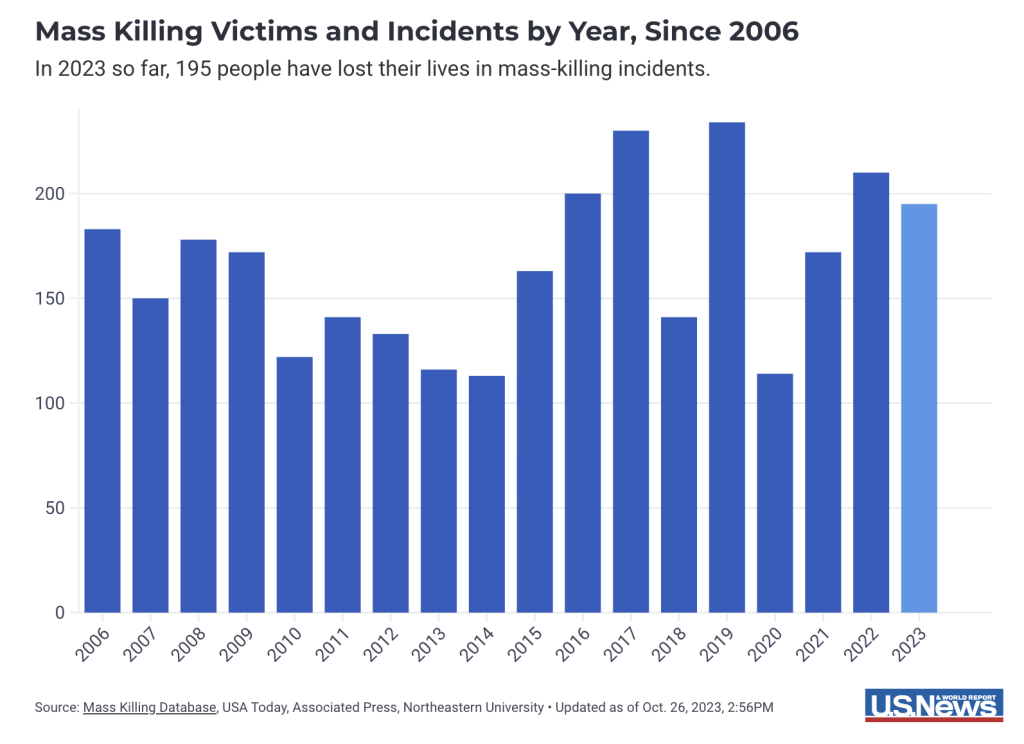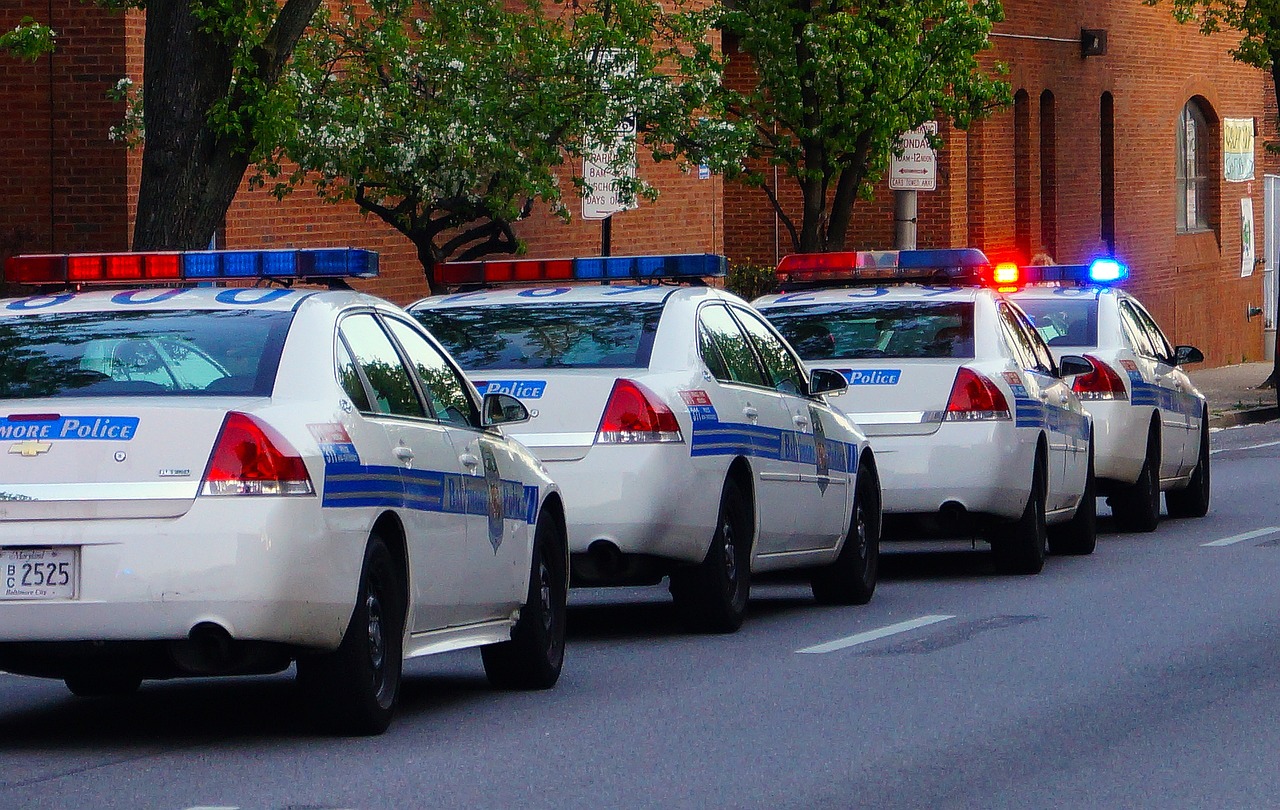How Can The Government Deal With Mass Shooting Incidents
Mass killings are chilling events that shake communities and nations to their core. In such dark times, it’s crucial to understand how the government can respond to these harrowing incidents. On October 25, a mass shooting happened at a bowling alley and nearby restaurant in Lewiston, Maine. It left at least 18 people dead and 13 more injured.
According to gun crime lawyer Robert Tsigler, states like New York proactively prosecutes anyone that carries a firearm or those who don’t have a license to own or carry one. But, mass shootings still happen. In 2023 alone, 195 people have died due to mass shootings.

Here are the ways the government responds to mass shootings and manages the complexities of the aftermath of mass killing incidents.
Law Enforcement Response and Investigation
When a mass killing occurs, the government immediately activates its emergency response protocols. The first step is to secure the crime scene and ensure the safety of the public. Law enforcement officers quickly arrive at the scene, armed with the necessary tools and equipment to assess the situation.
They diligently gather evidence, interview witnesses, and identify the perpetrator(s).
Specialized units, such as forensic experts and crime scene investigators, meticulously analyze every detail to reconstruct the sequence of events. Law enforcement agencies collaborate with other government agencies, such as intelligence services and the military, to gather information and prevent future attacks.
The investigation continues until all leads are exhausted, ensuring justice is served and the community can regain a sense of safety.
Crisis Management and Emergency Preparedness
Crisis management and emergency preparedness are vital in effectively handling tragic events.
In the aftermath of a mass killing incident, the government must be prepared for a swift and efficient response. Crisis management involves the coordination of various agencies and resources to ensure a well-organized response. This includes establishing a command center, implementing emergency protocols, and communicating with the public.
Emergency preparedness plays a crucial role in preventing further loss of life and minimizing the impact of the incident. It involves conducting drills, training first responders, and developing contingency plans.
By being proactive and prepared, the government can effectively manage crises and provide the necessary support and resources to affected communities.
Continuous assessment and improvement of emergency response strategies can ensure the safety and well-being of the public.
Mental Health Support and Counseling Services
In times of crisis, accessing mental health support and counseling services is important, as they provide essential resources for individuals grappling with difficult emotions and the path to healing and resilience.
The government takes a proactive role in ensuring the availability of these services to those affected when a mass killing incident occurs. They understand the immense psychological impact of such events and the need for immediate intervention.
Through partnerships with mental health professionals and organizations, the government establishes crisis counseling centers and hotlines to offer support and guidance. Trained counselors are deployed to affected areas, providing individual and group therapy sessions.
These services help survivors and witnesses process their trauma, manage grief, and develop coping strategies. The government might invest in long-term mental health programs and initiatives to address the lasting effects of such incidents on the community.
By prioritizing mental health support, the government aims to foster healing and promote the overall well-being of those affected by mass killings.
Legislative Actions and Gun Control Measures
Legislative actions and gun control measures have been implemented to address the complex issue surrounding firearms and enhance community safety. To mitigate the risks of mass killings and reduce gun violence, the government has taken several steps.
One of these measures is the implementation of stricter background checks for individuals purchasing firearms. This helps to identify and prevent those with a history of violence or mental illness from obtaining guns.
Efforts have been made to ban assault weapons and high-capacity magazines, as these weapons have been commonly used in mass shootings.
The government has also allocated funding for research on gun violence prevention, aiming to develop evidence-based policies and programs.
These legislative actions and gun control measures have become crucial factors in creating a safer environment and preventing future tragedies.
Community Healing and Support Initiatives
You can find solace and support through various community healing initiatives that are dedicated to helping you recover from the impact of such heartbreaking events. These initiatives aim to create safe spaces where individuals affected by mass killings can come together to share their experiences and emotions.
Support groups are organized to provide a platform for open discussions, allowing survivors, families, and friends to connect with others who have gone through similar tragedies. Counseling services are also available to help individuals cope with trauma and grief.
Community healing initiatives often organize memorial events and vigils to honor the lives lost and offer a sense of closure. These initiatives play a crucial role in fostering a sense of unity and resilience within the affected communities, providing comfort and strength during such difficult times.
Conclusion
Understanding how governments respond to mass killing incidents is not only enlightening but also a testament to their commitment to safeguarding the well-being of their citizens. We still think that prevention is better than cure though. In order to prevent mass shootings, there needs to be stricter gun laws and those who’d like to buy or carry a gun should be subjected to mandatory mental health assessment.

